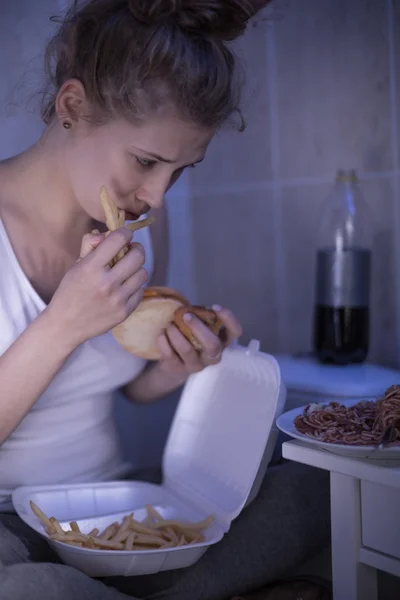An Initial Support Guide for those women with Bulimia.
If you have a friend or loved one struggling with bulimia, your support can make a tremendous difference. Navigating this situation can feel overwhelming at times for both you and your loved one, but, your compassion and understanding can still provide a vital lifeline.
Here’s how to be there for someone dealing with this eating disorder in a supportive and constructive way.
Educate yourself.

You need to educate yourself on what bulimia is really about. Before jumping in with advice or support, take the time to learn about bulimia. Understanding the symptoms, triggers, and challenges your friend faces will help you communicate more effectively.
Learn what kind of eating disorder it is. How does it come about? Why does it happen? What are the signs and symptoms of bulimia? What could you do to help them? Educate yourself first – before trying to help another.
Bulimia is a complex psychological disorder that often involves cycles of binge eating followed by purging. Your knowledge can guide your interactions and help you offer empathy instead of judgment.
Open Up the Conversation

Approaching the subject of bulimia can be daunting. Choose a safe, private space where your friend feels comfortable. Sit them down and have an easy no pressure chat with them. Listen with understanding. Do not be judgmental.
Let them know that you are concerned about their health, their eating habits. Do not attack them.
Attacking them would make them go on the defense, and, you would never be able to proceed from there on.
Gently express your concerns without being confrontational. You might say, “I’ve noticed you’ve seemed different lately, and I want to make sure you’re okay.” Focus on your feelings rather than accusing or diagnosing them, which can create defensiveness.
Tell them all you have learned about bulimia.
Listen Actively
Once the conversation is open, listen more than you speak. Your friend may need to vent, cry, and even share their struggles. Avoid interrupting or attempting to fix their problems outright – just let them know that you are there for them.
Just be sure to acknowledge their feelings by saying things like, “That sounds really tough,” or “I can’t imagine how hard this must be for you.” Validation can, and will, go a long way in establishing trust.
Be that true friend and give your sincere support, and even telling them that you are there to offer your support and yoru availability to them as this also builds trust. You can also tell your friend that, even if they do not want to discuss the matter that it is okay but! you are there when they need help. This is important should they have a change in mind.
Encourage Professional Help
While your support is vital, it is also essential to encourage your friend to seek the professional help they need. This could involve talking to a therapist who specializes in eating disorders or a nutritionist who understands their specific condition. You might consider saying to your friend, “I think talking to a professional could really help. I’m here to support you in that process.” Offer to assist in finding resources or going with them to appointments, if they’re comfortable.
You could accompany them to a counselor or a physician to get themselves checked. This can go a long way in being that reassuring support in time of need.
Be Patient And Build Together
Recovery from bulimia is a journey, and it will often include several ups and downs. It is important that we remain patient and understanding, throughout. There will be times that your friend may have relapses or moments of resistance. Simply remind them that you are there for the long haul and that they aren’t alone in this fight. Avoid putting pressure on them to recover quickly – as recovery takes time, and everyone moves at their own pace.
Build Healthy Activities Together
Engage in positive, healthy activities that can help shift focus away from food and body image. This could be taking a yoga class, going for walks, or even trying out a new hobby together. Encouraging your friend to participate in these activities can foster a sense of normalcy, allowing them to explore joys outside of food and eating habits.
Remember To Take Care Of Yourself
Supporting someone with bulimia can also be emotionally taxing, so don’t forget to prioritize your own mental health, too.

Consider talking to someone about your own feelings and concerns, whether it’s a friend, family member, or therapist. Be minded that you can’t pour from an empty cup, so ensure that you are taking care of yourself as well.
Be kind and understanding, while knowing your limits. Even though you can’t give them the professional help they require, be prepared to give them the moral support they need. Fighting bulimia may be a lifelong battle and they need all the help they can get. So be there for them
Empathy Is Important
In conclusion, being there for a friend struggling with bulimia requires empathy, patience, and understanding. By educating yourself, opening the conversation, and encouraging professional help, you can offer meaningful support. Remember, your love and care can truly help in their journey toward recovery.
Often-times a person with an eating disorder is too embarrassed to seek help. Other times, they may deny that they do have a problem. So if you noticed a friend who may bulimic, these are just a few ways to approach your friend and offer to help them.






